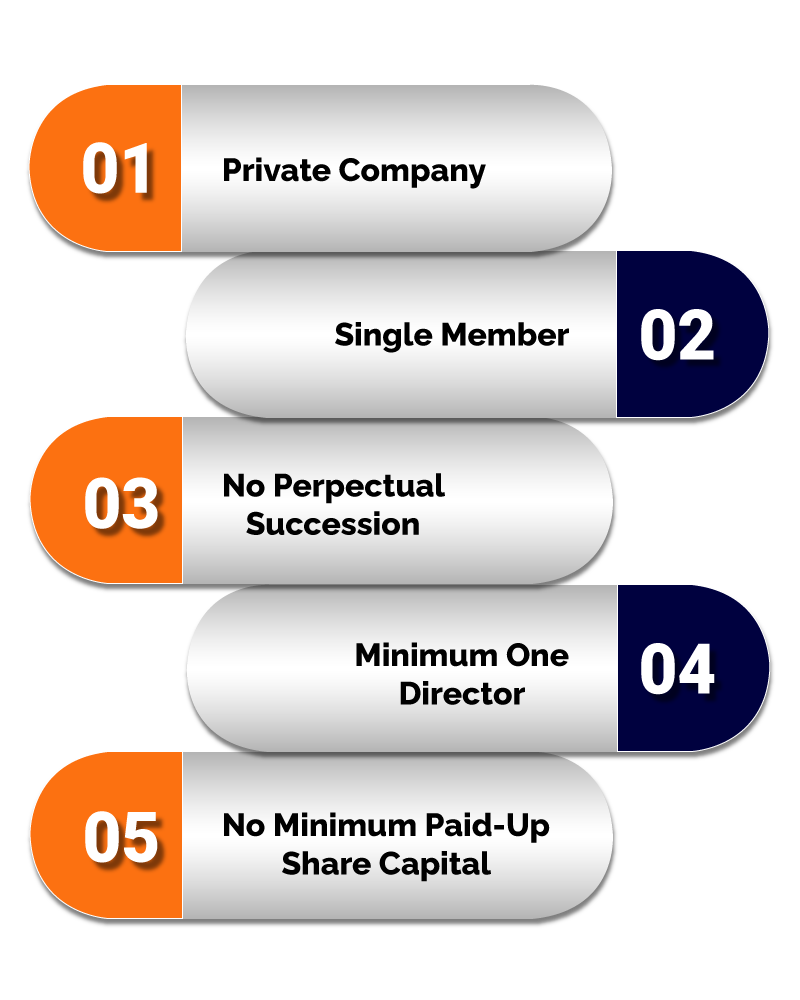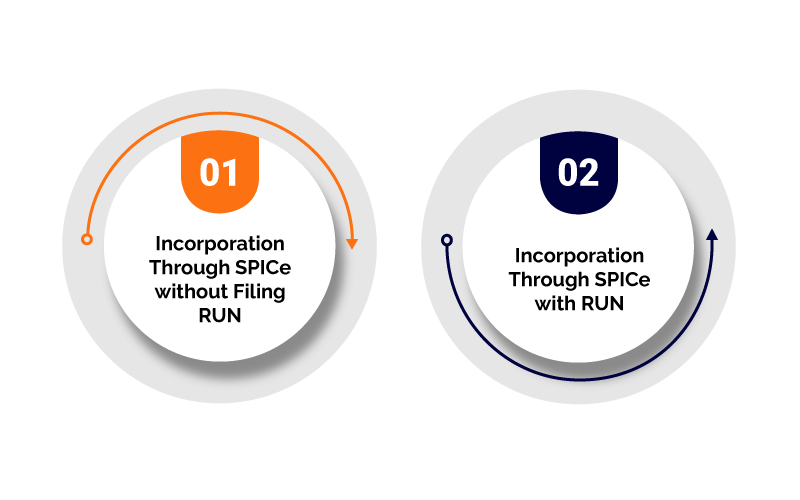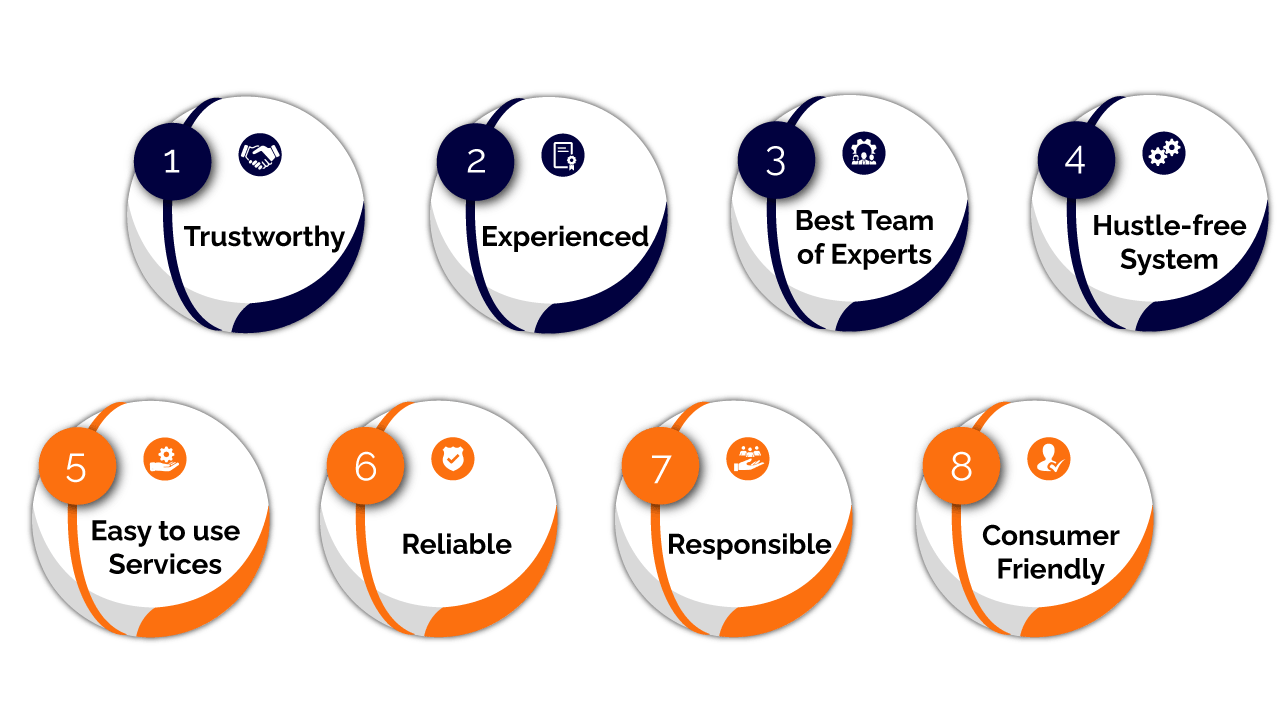Overview of One Person Company
Nowadays, obtaining One Person Company Registration acts as a forward-thinking notion for those individuals who either wants to have their own small business or are full with entrepreneurial dreams. However, at the same time these individuals do not have any resources, means, or time to attract more partners for the execution of the business plan.
Further, the concept of OPC Registration is recognised as a blend of the conventional Private Limited Company and Sole proprietorship.
Therefore, an OPC company benefits from the best of two worlds.
Concept of One Person Company
The concept of One Person Company (OPC) is defined under section 2 (62) of the Companies Act 2013. Further, this business structure requires only one individual who will act both the director and owner of the company. That means this individual has the ultimate authority regarding affairs and operations of the company.
Mandatory requirements of One Person Company
Following are the mandatory requirements of One Person Company-
- As per Section 12 of the Companies Act, 2013 its name must contain “One Person Company” in it.
- Minimum one director and a maximum of 15 directors are required.
- Generally One Person Companies are exempt from annual financial meetings. But when there is more than one director, Section 173(5) of the Companies Act, mandates the company to have met every six months of the calendar year. The minimum space should be of ninety days between the appointments.
- The decision of the meeting is passed when it is signed by the sole member.
- While signing a Memorandum of Association sole person has to make a nominee. This nominee will take over after the sole member. He can withdraw at any time.
- Application for Company Registration;
- Digital Signature Form;
- Declaration of Promoter in the MCA form INC 9;
- Declaration of the Promoter-Non-Deposit under FEMA and SEBI;
- Consent of Director in the form DIR 2;
- MOA and AOA of the Subscriber Sheet;
- No-Objection Certificate from the Actual Owner.
Forms for Obtaining OPC Registration
The forms required for the registration of a One Person Company are as follows-
Given below are some general features of One Person Company-

Private Company
Section 3(1) (c) of the Companies Act says that a single person can form a company for any lawful purpose. It further describes one person company as private companies.
Single- Member
One person company’s can have only one member or shareholder, unlike other private companies.
Nominee
A unique feature of One Person Company that separates it from other kinds of companies is that the company has to mention a nominee while registering the company.
No Perpetual Succession
Since there is only one member in an OPC, his death will result in the nominee choosing or rejecting to become its sole member. This does not happen in other companies as they follow the concept of perpetual succession.
Minimum One Director
OPCs need to have minimum one person [the member] as director. They can have a maximum of 15 directors.
No Minimum Paid - Up Share Capital
The Companies Act, 2013 has not prescribed any amount as minimum paid up capital for OPCs.
Special Privileges
OPCs enjoy several privileges and exemptions under the Company’s Act that other kinds of companies do not possess like:
- They do not have to hold annual general meetings.
- Their financial statements need not include cash flow statements.
- Several provisions relating to meetings and quorum do not apply to them.
- They can pay more remuneration to directors than compared to other companies.
Formation of One Person Company
A single person can form an OPC by subscribing his name to the memorandum of association and fulfilling other requirements prescribed by the Companies Act, 2013. Such memorandum must state details of a nominee who shall become the company’s sole member in case the original member dies or becomes incapable of entering into contractual relations.
This memorandum and the nominee’s consent to his nomination should be filed to the Registrar of Companies along with an application of registration. Such nominee can withdraw his name at any point in time by submission of requisite applications to the registrar. His nomination can also be cancelled by the member.
Incorporation of OPC
Types of OPC’s than can be incorporated under the new act are as:
- OPC Limited by Shares;
- OPC Limited by Guarantee with Share Capital;
- OPC Limited by Guarantee without Share Capital;
- Unlimited OPC with Share Capital , and
- Unlimited OPC with Share Capital.
Steps for Incorporation of OPC are given below-

Certificate of Incorporation
When the e-Form is processed and DIN is generated, an acknowledgement email of Certificate of Incorporation (COI) is sent on email. Further, on approval of SPICe+ forms, the Certificate of Incorporation (COI) is issued with PAN and TAN as allotted by the Income Tax Department. An electronic mail with Certificate of Incorporation (COI) as an attachment along with PAN and TAN is also sent to the user.
Documents Required for Incorporating a One Person Company
In India, the documents needed for the registration of a One Person Company are as follows-
- PAN Card;
- Latest Passport-sized Photograph;
- Identity Proof in the form of Aadhaar Card/ Voter Identity Card/ Driving License of the owner;
- Copy of the Rent Agreement;
- Utility Bill in the form of Electricity Bill or Water Tax Receipt;
- Sale Deed;
- No-Objection Certificate from the Landlord
Minimum Requirements for One Person Company Registration
The minimum requirements to incorporate a One Person Company are as follows-
- The person who is incorporating One Person Company needs to be both Resident and Citizen of India;
- Business Formats such as a Private Company and LLP cannot join an OPC;
- The promoter must select a nominee during incorporation;
- The minimum authorized capital for an OPC is Rs 1 Lakh;
- Restricts the functioning of a minor as member;
- Must not exceed the Annual Turnover of Rs 2 crore and Paid-up Capital of Rs 50 lakhs;
- Needs to have at least one nominee and one director
Procedure to Register a One Person Company
The steps included in the process of OPC registration are as follows-
- Obtain DSC and DIN
- Apply for Name Approval
- Application for the OPC Registration
- Signing of MOA and AOA
- Affidavit by Director and Subscriber
- Particulars of Subscribers
- Declaration by Professionals
- Submission of the Forms and Documents
- Issuance of the Certificate of Incorporation
The foremost step in the process is to acquire a DSC and DIN for the director of the company.
Now, the applicant needs to file Form INC 1 for the reservation of the company’s name. Also, the name must have suffix “OPC Pvt Ltd.” Further, the two ways of reserving a name are firstly, by filing an application form in SPICe 32 and secondly, by using RUN (Reserve Unique Name) Web services provided by MCA (Ministry of Corporate Affairs).
Now, the promoters need to apply for registration with the ROC within whose territorial jurisdiction the registered office of the company is located. Further, the Application for the Incorporation needs to be filed in the Form INC 2.
In the next step, the sole member of the company needs to sign the MOA (Memorandum of Association) and AOA (Article of Association). Also, the said member needs to provide details, such as his name, occupation, address, designation, in the presence of at least one witness. Further, the witness needs to provide his/ her basic details and signature as well.
Now, the sole member, who is a subscriber of MOA and AOA, requires providing a duly signed affidavit in the form INC 9.
Now, the applicant needs to file the particulars of subscription with ROC (Registrar of Company) during incorporation.
After that, a declaration made either by a CA/ Advocate/ Cost accountant/ or CS in practice needs to be filed in Form INC 8.
In this step, the applicant requires to annex SPICe Form, SPICe MOA, and SPICe AOA, together with the DSC of the Director. Further, the same needs be uploaded on the official MCA website for the approval as well. After, uploading the required documents, Form 49 A and 49 B will automatically be generated, which will later be used for the generation of TAN and PAN. Also, the said MCA forms are required to be uploaded to the MCA portal after affixing the Digital Signature of the proposed Director.
After the completion of Process, the ROC will issue COI (Certificate of Incorporation) for the commencement of the business operations.
Benefits of One Person Company Registration
A One Person Company Private Limited has many advantages as compared to Companies and Proprietorship firm. Some of them are listed below-
- Compliance Burden
- Organized Sector of Proprietorship Company
- Minimum Requirements
- Limited Liability Protection to Directors and Shareholders
- Legal Status and Social Recognition for Business
- Adequate Safeguards
- Easy To Get Loan from Banks
- Complete Control of the Company with the Single Owner
- Easy to Manage
- Filling With ROC
- Perpetual Succession
-
Tax Flexibility and Savings
The One Person Company includes in the definition of “Private Limited Company” in the Companies Act, 2013. Thus, an OPC will be required to comply with provisions applicable to private companies. The OPCs have been provided with a number of exemptions and therefore have lesser compliance burden.
OPC will bring out the unorganized sector of proprietorship into the organized one of a private limited company. Various small and medium enterprises, doing business as sole proprietors, might enter into the corporate domain. Proprietors always have unlimited liability. If such a proprietor does business through an OPC, then liability of the member is limited.
It must have minimum one shareholder, one director and one nominee. The director and shareholder can be the same person. There is no need of any Minimum Share Capital. Letters ‘OPC’ to be suffixed with the name of OPCs to distinguish it from other companies.
The most significant reason for shareholders to incorporate the ‘single person company ‘is certainly the desire for the limited liability. An OPC gives the advantage of limited liability to entrepreneurs whereby the liability of the member will be limited to the unpaid subscription money. This benefit is not available in case of a sole proprietorship. Thus OPC allows an individual to take risks without risking his/her personal assets.
Large organizations prefer to deal with private limited companies instead of proprietorship firms. Pvt. Ltd. Business structure enjoys corporate status in society which helps the entrepreneur to attract quality workforce and helps to retain them by giving corporate designations, like directorship. These designations cannot be used by proprietorship firms.
In case of death/disability of the sole person should be provided through another individual as nominee director. On the demise of the original director, the nominee director will manage the affairs of the company till the date of transmission of shares to legal heirs of the demised member.
Banking and financial institutions prefer to lend money to the company rather than proprietary firms. In most of the situations banks insist the entrepreneurs to convert their firm into a private limited company before sanctioning funds. So it is better to register your start-up as a One Person private limited rather than proprietary firm.
This leads to fast decision making and execution. Yet he/she can appoint as many as 15 directors in the OPC for administrative functions, without giving any share to them.
No requirement to hold annual or Extra Ordinary General Meetings. A One Person Company may conduct at least one meeting of the board of directors in each half of a calendar year and the gap between the two meetings shall not be less than ninety days. The quorum for meetings of board will not apply to One Person Company in which the no of directors is only one. Where the company is having only one director, all the businesses to be at the transacted meeting of the board shall be entered into minute’s book. No need to hold Board meeting in this case.
Very few ROC filing is to be filed with the Registrar of Companies. Mandatory rotation of auditor after expiry of maximum term is not applicable. The provisions of sec 98 and sec 100 to 111 [both inclusive], relating to holding of general meetings, shall not apply to a One Person Company.
An OPC being an incorporated entity will also have the feature of perpetual succession and will make it easier for entrepreneurs to raise capital for business.
In an OPC, it is possible for a company to make a valid contract with its shareholder and directors. This means as a director he/she can receive remuneration, as a lesser he/she can receive rent, as a creditor he/she can lend money to own company and earn interest. Director’s remuneration, rent and interest are deductible expenses which reduce the profitability of the company and ultimately bring down taxable income of the business.
Disadvantages of One Person Company Registration
Following are the disadvantages of One Peron Company-
- Members
- Suitable Only for Small Business
- Business Activities
- Perpetual Succession
- Separation of Owner and Control
- Other Disadvantages
One person company can have Minimum and Maximum no. of 1 member. A minor shall not be eligible to become a member or nominee of the One Person Company or can hold share with beneficial interest. Only a natural person who is an Indian citizen and resident in India shall be eligible to incorporate a One Person Company and shall be of a nominee for the sole member of a One Person Company.
OPC is suitable only for small business. OPC can have maximum Paid up share capital of Rs. 50 Lakhs or turnover of Rs. 2 Crores. Otherwise OPC need to be converted into Private ltd Co.
One person company cannot carry out Non- Banking Financial Investment activities including investment in securities of anybody corporate. Also One Person Company cannot be incorporated or converted into a company under section 8 of the Act.
The concept of separate legal entity being created for a perpetual succession that is continuation of the company even after the death or retirement of a member is also challenged. Because the nominee whose name has been mentioned in the Memorandum of Association will become the member of the company in the event of death of the existing member.
This is one of the most challenging concepts of the new Companies Act, 2013, where the line between the ownership and control is blurred. This might result in unethical business practices.
- A person shall not be eligible to incorporate more than a One Person Company or become nominee in more than one such company.
- NRIs not allowed incorporating One Person Company.
- Requirements to appoint a nominee for incorporating a One Person Company.
Conversion of OPCs into Other Companies
Rules regulating the formation of One Person Companies expressly restrict the conversion of OPC’s into Section 8 companies, i.e. companies that have charitable objectives. OPCs also cannot voluntarily convert into other kinds of companies until the expiry of two years from the date of their incorporation.
Mandatory Annual Compliances for OPC
The mandatory annual compliances for a One Person Company are as follows-
- Must hold a minimum of 2 Board Meetings;
- Statutory Audit by a Practicing Chartered Accountant;
- Appointment of Auditor;
- Filing of ITR;
- Annual filings to ROC;
- Maintenance of Minutes and Statutory Registers;
- Form AOC 4 for the Financial Statement;
- Form MGT 7 for an Annual Return
Penalty for Non-Compliance
If an OPC or any officer of such company contravenes the provisions of Companies Incorporation Rules, 2014, such contravening party will be punishable with fine which may extend to Rs.10,000/- and with a further fine which may extend to Rs.1000/- for every day after the first during which such contravention continues.
Why BizAdvisors?
BizAdvisors is one of the platforms that work together to meet all of your legal and financial needs while also connecting you with dependable specialists. Yes, our clients are happy with the legal services we provide. They have continually regarded us well and provided regular updates because of our focus on minimizing legal requirements. Our clients can also keep track of the progress on our platform at any moment. Our knowledgeable professionals are here to answer any queries you may have concerning OPC Registration process. BizAdvisors will make sure that your interactions with professionals are pleasant and smooth. Following are the reasons one should choose Bizadvisors-

- BizAdvisors is one of the many platforms which coordinate to fulfil all your legal requirements.
- It connects you with a team of expert professionals who can help you in every possible way.
- Its focus is on simplifying the legal requirements for the client.
- We have a very dedicated team that is ready to help you and guide you.
- Our mission is to create a hustle-free and easy-to-use system for the concerned consumers of our services.
- We give you reliability and trust.
- We make sure that we will provide you with the best services and can satisfy you with our quality work.
One Person Company, which is a new concept in India, already sees a big boom. A huge impact on the economy and development of a nation is expected. It gives opportunities to many and will, therefore, bring creative and young minds in front of everyone. The success of OPC is purely dependent upon its implementation but the concept is a necessity in the changing business arena where entrepreneurs are require taking risk and at the same time needs protection to cover up that risk. In the end it can be concluded that, the One Person Company has its own benefits and at the same time there exist various disadvantages as well and with the evolution of time the disadvantages can be curbed and the One Person Company can be made more effective and advantageous so that it can serve its purpose better.
Frequently Asked Questions
One Person Company is a company that has only one person as to its member. Members of the company are nothing but subscribers to its memorandum of association, or its shareholders. So, an OPC is effectively a company that has only one shareholder as its member.
One Person Company is incorporated as a private limited company, where there is only one member and prohibition in regard to invitation to the public for subscription of the securities of the company.
As per the Companies Act, 2013, the One Person Company amendment has been introduced which states that a private company must require 2 directors and members.
An OPC gives an advantage of limited liability to entrepreneurs whereby the liability of the member will be limited to the unpaid subscription money. Thus OPC allows an individual to take risks without risking his/her personal assets.
To register an OPC in Karnataka a minimum paid-up capital of Rs.1 lakh is required. Hence, the incorporation process is very quick and easy.
A One Person Company loses its right to continue as a one person company if it’s paid up share capital surpasses Rs.50 lakhs or its average annual turnover for the relevant period exceeds Rs.2 crores.
No, a person can be a member in only one OPC.
All such businesses must maintain books of accounts comply with statutory audit requirements and submit income tax returns and annual filings with the RoC.
OPC shall be required to convert itself into a private company or public company by virtue of its paid up share capital or average annual turnover.
Yes, a single individual can start an OPC in India.
No, only natural persons are allowed to form an OPC in India.
 9559179325
9559179325 9559179325
9559179325 9559179325
9559179325











